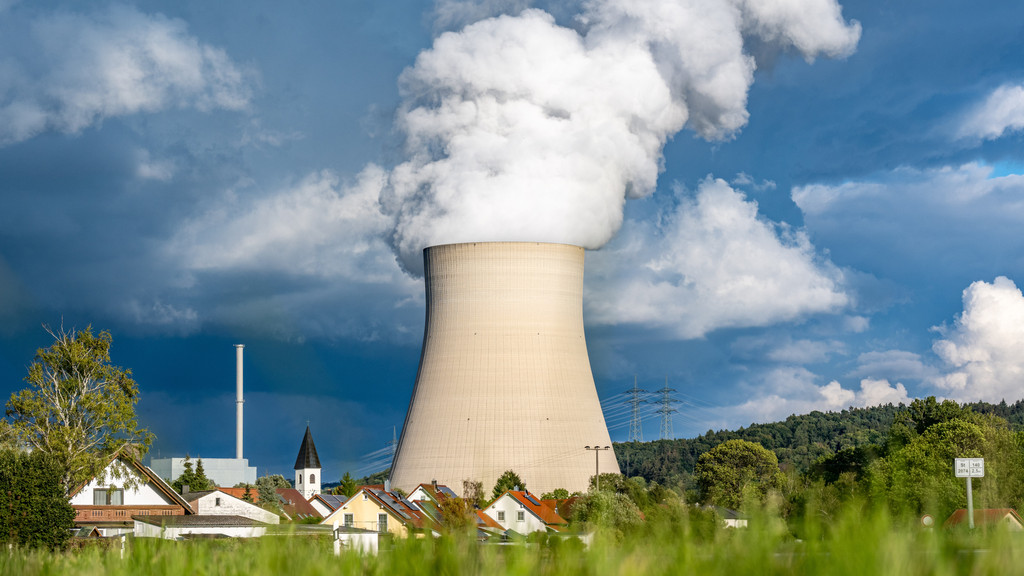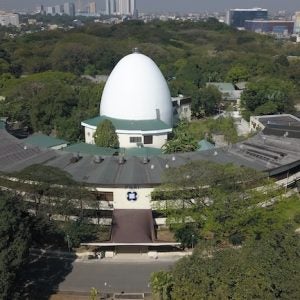 Germany’s Federal Minister for Economics & Climate Protection, Robert Habeck, says he expects to have to extend the lifespans of two NPPs – Neckarwestheim 2 (operated by Energie Baden-Württemberg – EnBW) in Baden-Württemberg, and Isar 2 (operated by E.ON) in Bavaria, to avoid possible outages and grid bottlenecks this winter.
Germany’s Federal Minister for Economics & Climate Protection, Robert Habeck, says he expects to have to extend the lifespans of two NPPs – Neckarwestheim 2 (operated by Energie Baden-Württemberg – EnBW) in Baden-Württemberg, and Isar 2 (operated by E.ON) in Bavaria, to avoid possible outages and grid bottlenecks this winter.
Earlier in September, the Ministry of Economics and Climate Protection (Bundesministerium für Wirtschaft und Klimaschutz – BMWK) extended the possible operation of the two plants until mid-April 2023 to provide an "emergency reserve" in face of the current energy crisis resulting from sanctions on Russian oil and gas. The plants were scheduled for closure in December in line with Germany’s nuclear phase-out plan.
Following the 2011 Fukushima accident, Chancellor Angela Merkel decided to phase out nuclear power by the end of 2022. Eight units were closed down immediately: Biblis A and B, Brunsbüttel, Isar 1, Krümmel, Neckarwestheim 1, Phillipsburg 1 and Unterweser. Three others – Brokdorf, Grohnde and Gundremmingen C – were permanently shut down at the end of 2021. Emsland NPP (operated by RWE) in Lower Saxony will definitely be shut down in December in line with the plan.
Habeck, a member of the Green party, then said Neckarwestheim 2 and Isar 2 be taken off the grid but kept on standby so that they could still be reconnected in a crisis situation. The decision to keep the plants in operation follows a shortage in supplies of electricity coming from France due to the fact that more than half of its nuclear power stations are offline, he told journalists in Berlin. He said that the necessary changes to the law covering the extension of the plants would be voted on in the Bundestag at the end of October.
The agreement to keep the two plants on line was reached between BMWK) and Energie Baden-Württemberg (EnBW) and EON group subsidiary PreussenElektra. The plants will be transferred to an operational reserve after the end of their regular service life on 31 December and the plant operators must take steps to ensure that the reactors can continue to be operated until 15 April at the latest.
BMWK noted that continued operation of the reactors will be based on a "grid stress test" which involves monitoring the "availability of nuclear power plants in France, the number of coal-fired power plants that have returned to the market, the availability of gas and coal-fired power plants and the expected development in electricity consumption". The government will decide on the actual reserve operation of the plants by the beginning of December at the latest. If the reactors continue operating, the operators will generate revenue from the electricity market but if they remain offline, the government will reimburse all costs incurred in preparing for continued operation. BMWK said the federal government aims to complete the legislative process for keeping the units in standby by the end of October. Contractual agreements to secure the preparatory measures of the operators for the operational reserve are also being prepared.
Habek said earlier estimates of output from France's NPPs looked unlikely to be met. "The originally specified 50 GW of output from the nuclear power plants there in winter can no longer be assumed," he said. The latest estimate now expects only 45 GW of output and that would only occur for two weeks in January. Output of only 40 GW is forecast by the end of February. "As the minister responsible for energy security, I must therefore say that if this development is not reversed, we will leave Isar 2 and Neckarwestheim connected to the grid in the first quarter of 2023. As of today, I think this is necessary. The talks with the operators have been concluded and the key issues paper agreed."
According to PreussenElektra, if the operational reserve is used, the Isar 2 plant would soon go into a brief shutdown in order to carry out an overhaul of the pressuriser pilot valves. After restarting, it would continue to operate using the current fuel beyond 31 December until probably the beginning of March 2023. The 1410 MWe (net) pressurised water reactor (PWR) would be able to operate between about 95% capacity initially and about 50% at the end, thus producing around 2 TWh of electricity.
"For us as an energy company, the agreement now reached with the German government is very challenging to implement," said Georg Stamatelopoulos, Chief Operating Officer for Sustainable Generation Infrastructure at EnBW. "It means that we will have to rework all measures prepared for the planned year-end phase-out in the direction of safe and reliable continued operation in a deployment reserve. We believe that the agreement reached permits a fair solution as regards the spectrum of economic risks and potential returns."
EnBW said Neckarwestheim 2 will "definitely" shut down on 31 December. "If the German government decides that it is necessary to continue electricity generation, the plant's reactor core will be reassembled with existing, partially used fuel elements in order, by means of this optimisation process, to guarantee the generation of up to 1.7 TWh of electricity after restarting the reactor."
PreussenElektra CEO Guido Knott noted: “Even if there is unfortunately no final clarity about the continued operation of Isar 2, we welcome the agreement that has been reached. We can work with it, and we can now start the necessary preparatory work.”
Meanwhile, EnBW and RWE have rebooked the legally certified electricity volumes, according to DPA. As a result, the Neckarwestheim 2 and Emsland can produce electricity to full capacity by the end of the year. From the unused amount of electricity from EnBW’s closed Philippsburg 2 NPP, the company has transferred around 1.5TWh to Neckarwestheim 2. According to the Atomic Energy Act , each reactor may only generate the amount of electricity assigned to it, but it is possible to transfer these quotas. This is to ensure that the technically possible amount of electricity is actually produced, said the managing director of the EnBW nuclear power division, Jörg Michels. However, EnBW said the transfers were not related to the current debate about extending the lifetime of nuclear power plants.
The NPP extensions have increased differences within Germany's ruling coalition (Free Democratic Party, Greens and Social Democratic Party, pitting the environmentalist Greens against the pro-business Free Democrats. Environment Minister Steffi Lemke of the Greens, on 28 September ruled out extending the lifespans of two nuclear plants beyond the coming winter or purchasing the new fuel elements which would be needed. The executive committee of Free Democrats, on the other hand called for extending the lifespans of three plants (the two agreed as well as Emsland) as well as bringing three plants that were recently shut down back online. Anything else would be irresponsible, said Stefan Birkner, FDP chairman for the state of Lower Saxony.
Image: The Isar nuclear power plant






